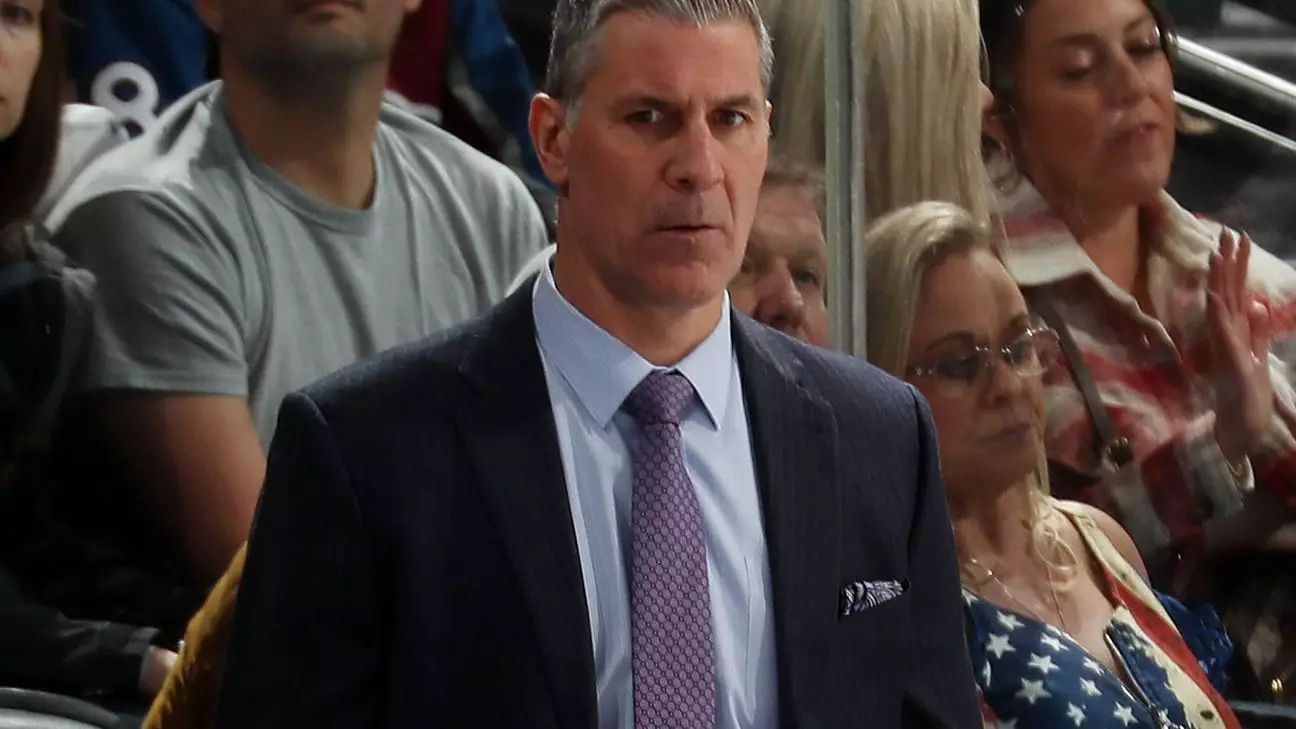The Colorado Avalanche managed to secure a 3-2 overtime victory against the New York Rangers, but head coach Jared Bednar’s post-game remarks revealed a stark contrast between the win and his team’s performance. Bednar’s singular and pointed response—“Unimpressive”—quickly signaled that while the scoreboard indicated success, the game itself exposed underlying issues within the team’s dynamics. As the Avalanche transition into a critical five-game homestand, Bednar’s concerns about relying heavily on a limited number of players could signal trouble moving forward.
The Avalanche’s resilience can be partially credited to standout performances from key players. Goaltender Mackenzie Blackwood, in his recent run since joining from San Jose, was pivotal in keeping the Rangers at bay, making 27 saves and demonstrating exceptional composure under pressure. Devon Toews, who ultimately scored the decisive goal in overtime, acknowledged the critical nature of the contributions from Blackwood. His ability to fend off what Toews described as “12 grade-A scoring chances” was necessary to maintain Colorado’s competitiveness throughout the match. This reliance on top-tier players raises questions about depth and consistency within the squad.
Bednar’s criticism that “it felt like only half a team was playing” highlights a concerning trend in the Avalanche’s performance. The team’s success, particularly in comeback scenarios, has often hinged on the efforts of a small group of players rather than a collective team effort. This can create a volatile situation where the burden of performance disproportionately falls on certain individuals, such as Blackwood and Toews, risking fatigue and diminished effectiveness over the course of a lengthy season. Such imbalances can lead to future predicaments, especially without a broad distribution of effort and contribution across the entire roster.
Moreover, the Avalanche’s penalty-kill unit played a crucial role in maintaining momentum, especially during critical moments. With Mikko Rantanen in the penalty box, the team had to rely on its remaining players to grind through overtime without yielding another goal—a feat they managed successfully. Bednar’s acknowledgment of this grit underscores the importance of special teams in competitive hockey, yet it also highlights the fragility of that strategy if the same players are repeatedly put in high-pressure scenarios.
As the Avalanche gear up for the remainder of their homestand, Bednar’s mixed emotions of annoyance and anger speak volumes about the challenges that lie ahead. The coach’s reflection on a lackluster practice prior to the game could be indicative of deeper issues, potentially calling for an evaluation of practice methods and team motivation tactics. The Avalanche may need to cultivate a culture of accountability and shared contribution to solidify a path towards sustained success rather than fleeting victories.
While the win would typically bring celebration, for Bednar, it serves as a stark reminder that hockey is a team sport—and for the Avalanche to thrive, a more collective effort is essential.

